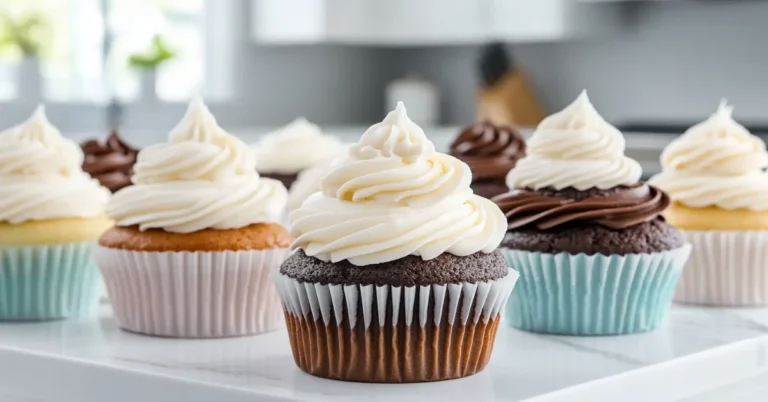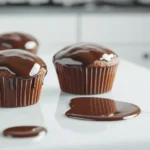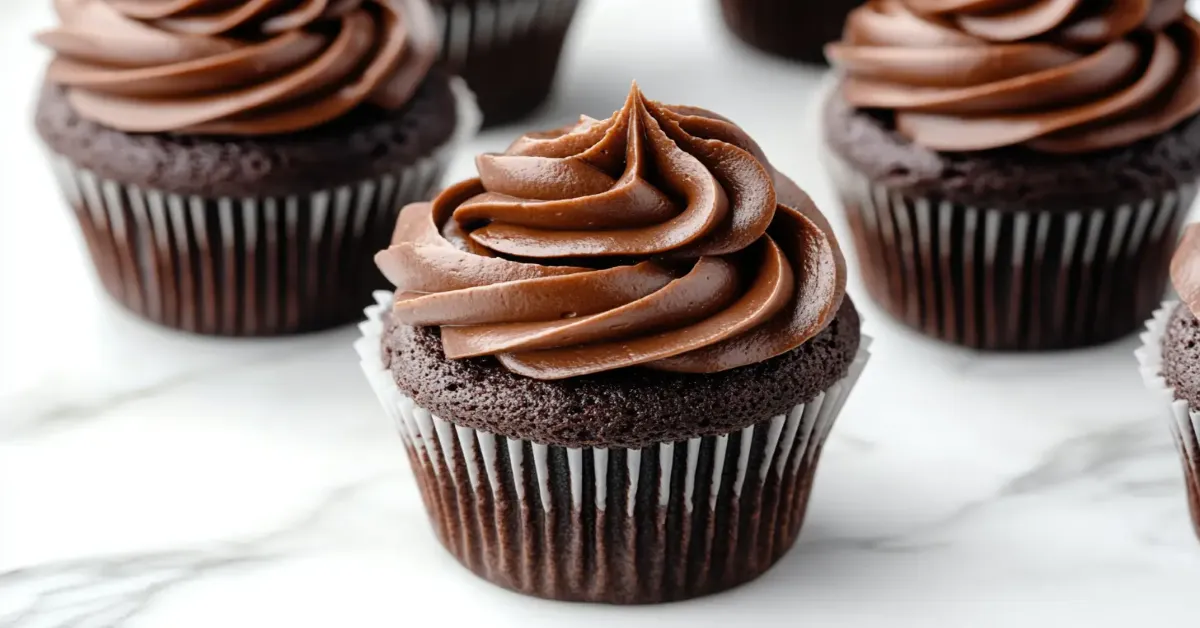Introduction to the Great Baking Debate
Is It Better to Make Cupcakes with Oil or Butter? This question has stirred passionate opinions across kitchens worldwide. Some bakers swear by the rich flavor of butter, while others highlight the unbeatable moisture from oil. Each ingredient impacts your cupcake’s final texture, aroma, and taste differently. Therefore, choosing between these fats isn’t merely a matter of preference—it’s a calculated decision that affects the entire baking process. Because cupcakes require the right balance of structure and softness, understanding which fat performs better under heat and mixing is crucial.
Additionally, as home bakers aim for consistently moist and flavorful results, this debate grows more relevant. Throughout this guide, you’ll gain insight into how both butter and oil perform in cupcake recipes and how they compare side by side. To answer Is It Better to Make Cupcakes with Oil or Butter, we must begin with the science of fat itself.
Understanding the Role of Fat in Cupcake Recipes
What Does Fat Actually Do in Baking?
To answer Is It Better to Make Cupcakes with Oil or Butter, we must first recognize fat’s fundamental role in baking science. Fat doesn’t merely add richness; it changes structure, mouthfeel, and flavor absorption. In cupcake batters, fat coats flour particles and slows gluten formation, which results in a tender crumb. It also holds air when creamed with sugar, which directly influences leavening. Meanwhile, fat emulsifies liquids, ensuring even distribution of flavor compounds and smooth batter consistency.
Because both oil and butter perform these roles differently, your choice will significantly shape your cupcake outcome. For example, while butter solidifies at room temperature, oil remains liquid, influencing how moisture is retained during and after baking. These distinctions become vital when we ask Is It Better to Make Cupcakes with Oil or Butter—and we’ll examine each fat’s function next.
Butter: Classic, Flavorful, and Wholesome
The Science Behind Butter in Cupcakes
When evaluating Is It Better to Make Cupcakes with Oil or Butter, butter often appeals to bakers who prioritize flavor. Butter is composed of approximately 80% fat and 20% water and milk solids, meaning it contributes both richness and steam-driven leavening. When creamed with sugar, butter traps air pockets that help cupcakes rise. Additionally, butter solidifies as it cools, providing structure to your finished product.
As cupcakes bake, the milk solids in butter undergo the Maillard reaction, enhancing browning and developing complex notes. These characteristics give butter a multidimensional edge in flavor—but the trade-off may involve less moisture retention. While butter contributes structure and flavor depth, it can sometimes lead to drier cupcakes if not balanced with other moistening agents. That’s why, when determining Is It Better to Make Cupcakes with Oil or Butter, the context of the recipe and desired texture matter greatly.
Pros and Cons of Using Butter
To better understand Is It Better to Make Cupcakes with Oil or Butter, it helps to look at butter’s advantages and limitations.
Pros of Butter:
- Provides rich, complex flavor from milk solids
- Enhances browning through Maillard reaction
- Creates a lighter, airy texture when creamed
Cons of Butter:
- Contains water, which can affect moisture consistency
- Less effective at retaining softness over time
- Requires softening before mixing, adding prep time
Because of these traits, butter is often chosen for recipes where flavor richness is a priority. Yet if you want a longer shelf life and ultra-moist texture, oil might outperform. That contrast is vital when asking Is It Better to Make Cupcakes with Oil or Butter for your needs.
Oil: Moisture Magic and Modern Texture
How Oil Performs in Cupcake Recipes
When it comes to the question “Is it better to make cupcakes with oil or butter?”, oil often takes the lead for producing cupcakes that are exceptionally moist and tender. Unlike butter, which contains both fat and water, oil is 100% fat—allowing it to blend effortlessly with other liquids in the batter for smooth, even mixing. This contributes to consistent texture and moisture that holds up well, even days after baking.
Because oil remains liquid at room temperature, it keeps the cupcake crumb soft and prevents it from drying out. It also simplifies preparation, eliminating the need for creaming. While oil doesn’t provide the same rich flavor as butter, it creates space for other flavors—like vanilla, citrus, or cocoa—to shine. For bakes that need to stay fresh longer or travel easily, oil is a reliable and practical choice.
Pros and Cons of Using Oil
Evaluating Is It Better to Make Cupcakes with Oil or Butter also means listing oil’s distinct qualities.
Pros of Oil:
- Provides consistent, long-lasting moisture
- Easy to use—no softening required
- Ideal for tender, soft textures
Cons of Oil:
- Offers minimal flavor compared to butter
- Doesn’t cream with sugar, reducing lift
- Can result in a denser texture if not balanced properly
For cupcake recipes prioritizing shelf life and softness, oil becomes a top contender. However, the absence of strong flavor may limit its use in butter-forward recipes. That’s why Is It Better to Make Cupcakes with Oil or Butter depends on your priorities as a baker.
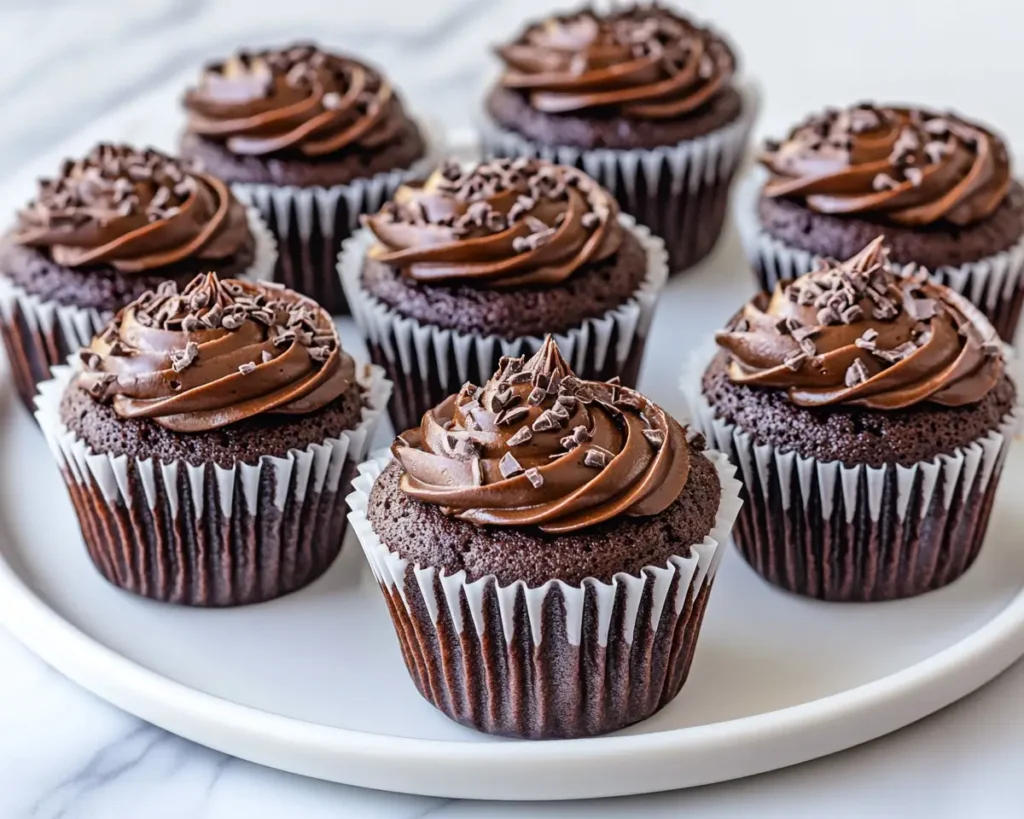
Side-by-Side Comparison: Butter vs Oil
Flavor
In determining Is It Better to Make Cupcakes with Oil or Butter, flavor is arguably the most noticeable difference. Butter provides a rich, slightly sweet profile thanks to its milk solids and unique aroma. It also develops complex flavors during baking. In contrast, oil has a neutral taste that won’t compete with other ingredients. This can be useful for enhancing added flavorings like lemon, vanilla, or chocolate. Yet, cupcakes made solely with oil may feel “flatter” in taste.
Flavor Impact Table
| Fat Type | Flavor Profile | Enhancement |
|---|---|---|
| Butter | Rich, layered, and aromatic | Adds depth to vanilla, spice, and fruit |
| Oil | Neutral, clean | Allows other ingredients to stand out |
So if flavor is your top priority, you may answer Is It Better to Make Cupcakes with Oil or Butter with a strong vote for butter.
Texture
Texture also weighs heavily when answering Is It Better to Make Cupcakes with Oil or Butter. Butter creates a firmer structure, especially when cupcakes are eaten cold. Oil, meanwhile, keeps cupcakes soft and tender even after refrigeration. Because oil is liquid, it doesn’t stiffen like butter does when cooled. This results in a consistently moist mouthfeel. Butter offers more structure, but oil wins when smooth crumb texture matters most.
Texture Considerations:
- Butter = Airy and structured, may dry over time
- Oil = Moist and soft, stays consistent longer
The choice depends on whether you prioritize delicate crumb or a slightly denser, fluffier bite.
Shelf Life
When questioning Is It Better to Make Cupcakes with Oil or Butter, shelf life plays a vital role. Cupcakes made with oil often stay fresh for several days without noticeable changes in texture. Butter-based cupcakes tend to dry out faster due to water evaporation and fat solidification. If baking in advance or preparing for an event, oil may prove more reliable for keeping cupcakes soft.
Shelf Life Chart
| Fat Type | Freshness Retention | Best Use Case |
|---|---|---|
| Butter | 1–2 days optimal | Same-day events |
| Oil | 3–4 days optimal | Make-ahead baking |
Thus, oil answers Is It Better to Make Cupcakes with Oil or Butter better for extended storage.
Nutritional Differences
Health-conscious bakers also ask Is It Better to Make Cupcakes with Oil or Butter based on nutritional profiles. Butter contains saturated fats and cholesterol, while most vegetable oils are lower in saturated fat and contain heart-healthy unsaturated fats. However, calorie content is similar per gram. For those avoiding dairy, oil offers a plant-based alternative.
Nutrition Table
| Fat Type | Saturated Fat (per tbsp) | Cholesterol | Dairy-Free? |
|---|---|---|---|
| Butter | ~7g | Yes | No |
| Oil | ~2g (canola/vegetable) | No | Yes |
Therefore, the nutritional answer to Is It Better to Make Cupcakes with Oil or Butter will depend on your dietary goals.
When to Choose Butter Over Oil (And Vice Versa)
Situational Use in Baking
To answer Is It Better to Make Cupcakes with Oil or Butter, context matters more than preference. Butter often excels in recipes where flavor complexity and aeration are essential. When you’re baking for occasions where richness is expected—such as vanilla bean cupcakes or brown butter variations—using butter aligns with both tradition and taste expectations. In contrast, oil becomes the preferred choice for recipes demanding extended moisture, such as carrot cupcakes or chocolate-based batters. Because oil maintains softness over time, it’s also ideal for bulk baking or storage.
Additionally, outdoor events or warm climates benefit from oil’s ability to resist melting or hardening. Therefore, your answer to Is It Better to Make Cupcakes with Oil or Butter may shift based on baking goals, audience, and recipe type.
Use Butter When:
- You want bold, rich flavor
- The recipe calls for creaming
- The cupcakes will be served fresh
Use Oil When:
- Moisture and shelf life matter
- The recipe includes strong flavorings (e.g., cocoa)
- You need dairy-free options
Professional Baker Tips for Best Cupcake Results
For those asking “Is it better to make cupcakes with oil or butter?”, professional bakers emphasize that the best choice depends on your desired outcome. Precision and technique matter just as much as ingredient selection.
If using butter, make sure it’s softened—not melted—so it can properly cream with sugar and trap air, which helps create lift and structure. When using oil, accurate measurement is key, and you’ll want to avoid overmixing the batter to prevent a dense crumb. Many pros actually recommend blending the two—using both butter and oil—to balance flavor and moisture for the best of both worlds.
Expert Tips:
- Use butter for structure and flavor; use oil for moisture and tenderness
- Try half butter, half oil for a hybrid texture that’s both rich and soft
- Cream butter thoroughly to ensure even lift and crumb structure
- With oil-based batters, pair with bold flavors like coffee, cocoa, or citrus for added depth
Since each fat contributes differently to texture and taste, mastering the balance between them can help you achieve bakery-level cupcakes at home.
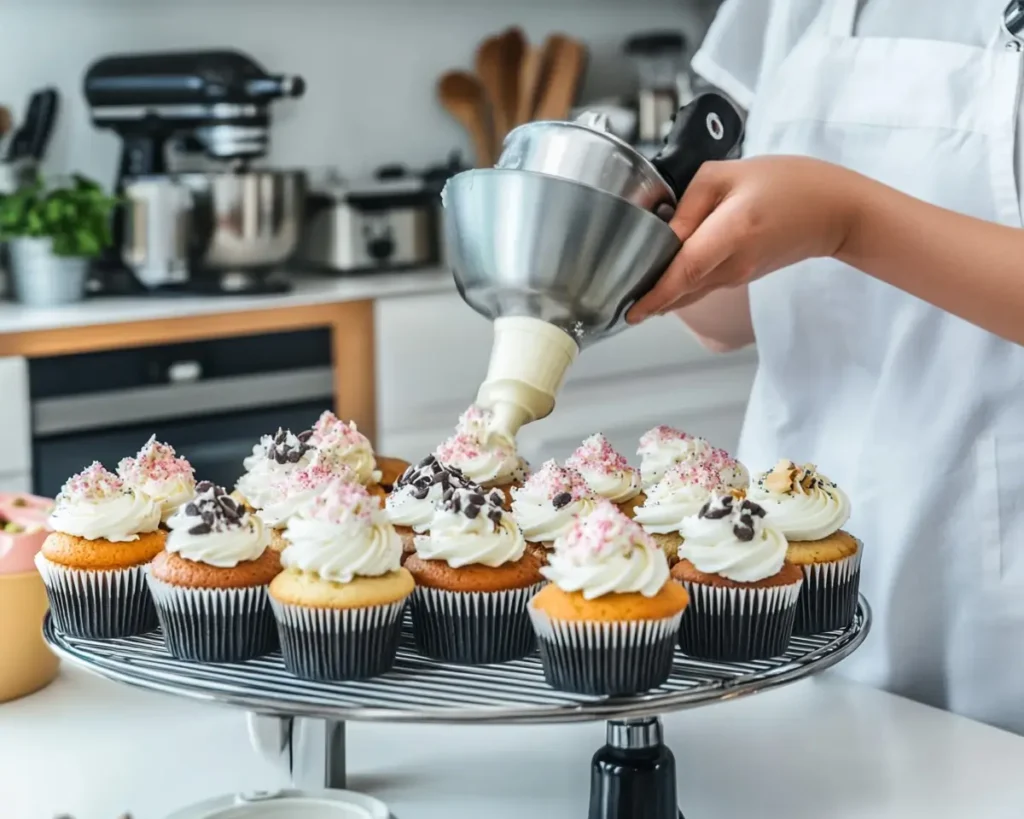
Health Considerations: Which is Better for You?
Evaluating Is It Better to Make Cupcakes with Oil or Butter from a health standpoint reveals several distinctions. Butter contains saturated fat and cholesterol, both of which may raise LDL levels when consumed frequently. However, it also provides fat-soluble vitamins like A and D. On the other hand, vegetable oils—especially canola, sunflower, or olive—offer unsaturated fats that support heart health. Additionally, oil is typically dairy-free, making it suitable for those with lactose intolerance or vegan diets. When answering Is It Better to Make Cupcakes with Oil or Butter nutritionally, moderation is key regardless of your choice.
Comparison Chart: Health Profile
| Nutrient | Butter (1 tbsp) | Canola Oil (1 tbsp) |
|---|---|---|
| Calories | 102 | 124 |
| Saturated Fat | 7g | 1g |
| Cholesterol | 31mg | 0mg |
| Omega-3 Content | Low | Moderate |
| Dairy-Free | No | Yes |
Ultimately, those seeking a heart-friendly or plant-based option may prefer oil. Yet for flavor and tradition, butter still has its place in moderation.
Substituting Butter and Oil: Ratios and Techniques
Understanding how to substitute helps answer Is It Better to Make Cupcakes with Oil or Butter when adapting recipes. Since butter contains water while oil does not, a direct one-to-one substitution may not yield identical results. Generally, you should reduce oil quantity slightly if replacing butter. For best texture, follow established substitution ratios and consider the impact on taste and moisture.
Standard Conversion:
- Replace 1 cup of butter with ¾ cup of oil
- Use 1 cup of butter to replace 1 cup of oil + 1–2 tablespoons of milk to mimic butter’s water content
Substitution Guidelines:
- When replacing oil with butter, ensure you cream properly to maintain rise
- When replacing butter with oil, don’t overmix—less air will be incorporated
- For hybrid results, mix equal parts oil and butter
Applying the correct technique ensures your results remain stable whether you lean toward butter or oil.
Common Mistakes When Using Oil or Butter in Cupcakes
Avoiding errors is essential when exploring Is It Better to Make Cupcakes with Oil or Butter. Each fat requires a specific method. A common mistake with butter is using it straight from the fridge, which prevents proper aeration. Likewise, using too much oil or not accounting for its liquid nature can result in greasy, sunken cupcakes. Another frequent error is failing to mix thoroughly with butter, leading to uneven crumb. When oil is used, undermixing dry ingredients can lead to clumping. Your decision around Is It Better to Make Cupcakes with Oil or Butter must therefore be paired with correct techniques to avoid these pitfalls.
Mistake Checklist:
- Using cold butter in creaming stage
- Overusing oil and causing excess moisture
- Substituting fats without adjusting liquid ratios
- Not accounting for flavor loss with oil
- Expecting butter to remain moist for several days
Correcting these mistakes will make your cupcakes more predictable and enjoyable—regardless of the fat used.
FAQs About Oil vs Butter in Cupcakes
Is it better to make cupcakes with oil or butter for a lighter texture?
When asking Is It Better to Make Cupcakes with Oil or Butter for a lighter texture, butter usually performs better due to the creaming process. Creaming butter with sugar introduces air into the batter, which helps create a fluffy and airy crumb. However, if overmixed or used cold, butter can become dense. Oil does not provide the same aeration, but it does deliver a moist and smooth texture that some may perceive as softer. Therefore, for a truly light structure, butter is often the preferred choice—when used correctly.
Which fat results in a more moist cupcake: oil or butter?
To determine Is It Better to Make Cupcakes with Oil or Butter for moisture, oil clearly leads. Since oil remains liquid at room temperature and doesn’t solidify like butter, it helps lock in moisture longer. Butter-based cupcakes can start drying out within 1–2 days, especially if left uncovered. Oil-based cupcakes, however, remain tender for 3–4 days or more. If long-lasting moisture is your main priority, oil will yield better results.
Can I combine oil and butter in the same cupcake recipe?
Yes, combining both fats can be an ideal strategy when evaluating Is It Better to Make Cupcakes with Oil or Butter. Using half butter and half oil allows you to benefit from butter’s flavor and oil’s moisture. This hybrid approach creates balanced cupcakes that are both flavorful and soft. Professional bakers often apply this method to ensure a rich taste without sacrificing tenderness or shelf life.
Is it better to make cupcakes with oil or butter for chocolate-based recipes?
When asking Is It Better to Make Cupcakes with Oil or Butter for chocolate cupcakes, oil generally wins. Chocolate already has a bold flavor, so the richness of butter can get lost. Oil’s neutral profile allows cocoa or melted chocolate to shine while ensuring the cupcakes stay moist for days. Therefore, if you’re baking chocolate cupcakes, oil will typically yield a more desirable texture and flavor delivery.
Can I substitute oil for butter 1:1 in any cupcake recipe?
You can, but with caution. In answering Is It Better to Make Cupcakes with Oil or Butter, substitution requires adjustments. Butter contains about 20% water, so if you’re replacing it with oil, reduce the oil to ¾ cup for every 1 cup of butter. Also, be aware that you may lose some flavor and structure. It’s best to test substitutions in small batches or follow recipes that already account for the switch.
Which fat is healthier: butter or oil?
From a nutritional standpoint, answering Is It Better to Make Cupcakes with Oil or Butter involves analyzing fat content. Butter contains saturated fats and cholesterol, which can affect heart health when overconsumed. Vegetable oils like canola or sunflower provide unsaturated fats that are considered healthier. Moreover, oil is suitable for vegan or lactose-intolerant diets. Therefore, for those focused on health and dietary needs, oil often comes out on top.
Conclusion: What’s the Final Verdict?
So, Is It Better to Make Cupcakes with Oil or Butter? The final answer depends entirely on your goal. If you value flavor, prefer a fluffy texture, and plan to serve your cupcakes the same day, butter might be your ideal choice. However, if you need extended moisture, a dairy-free option, or an easier prep process, oil stands out as the more practical choice. Many professional bakers blend both to achieve a balance between richness and softness. As this analysis shows, the better option isn’t universal—it’s conditional.
Final Verdict Table
| Priority | Better Choice |
|---|---|
| Flavor Depth | Butter |
| Moisture | Oil |
| Shelf Stability | Oil |
| Traditional Recipes | Butter |
| Vegan/Dairy-Free | Oil |
Because baking success is about intention and technique, your personal answer to Is It Better to Make Cupcakes with Oil or Butter will depend on the outcome you aim to achieve.

